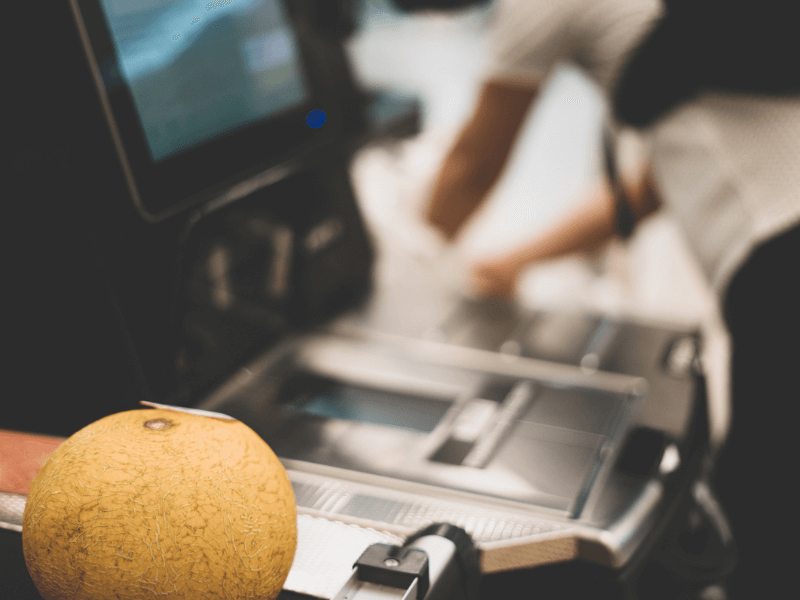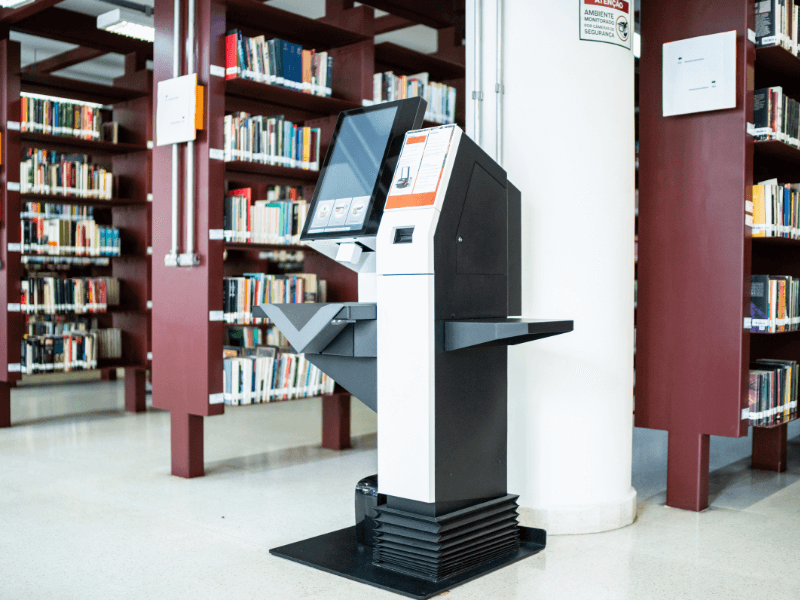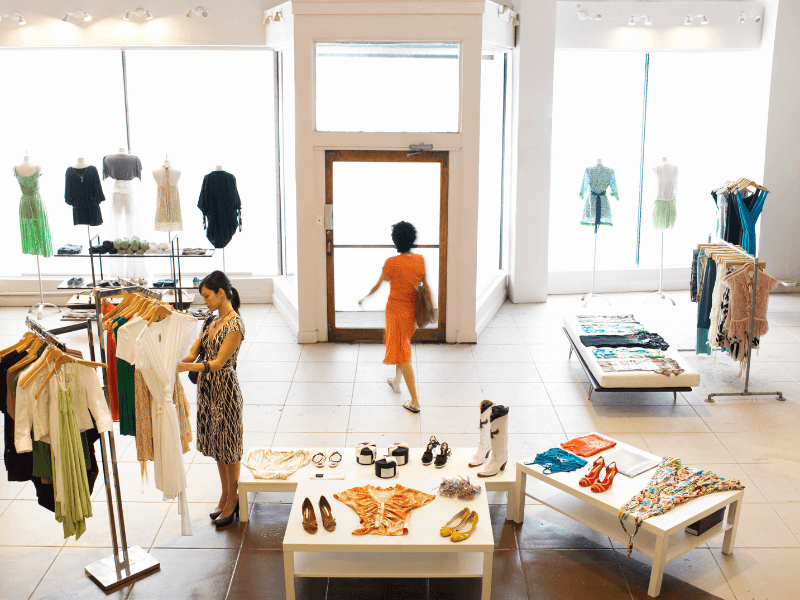Retailers, have you noticed how much easier it is for consumers to shop these days? It's all thanks to technology, which has revolutionized the shopping experience and changed the way we behave as consumers. But what does this mean for your business? Is the rise of autonomous shopping a doomsday scenario? Not at all! In fact, retailers can thrive in this new era of shopping if they're ready to adapt to changing technology and consumer behavior.
So, if you're wondering how to prepare for the autonomous shopping revolution, we've got you covered. Let's dive into some exciting ways you can future-proof your business and keep up with the ever-evolving demands of your customers. From embracing retail weighing scales, and innovative technologies to creating personalized shopping experiences, there are plenty of opportunities for retailers to stand out in this new world of shopping.
Strive for Efficiency

The biggest thing that retailers need to keep in mind when it comes to autonomous shopping is that efficiency is the name of the game. More than ever before, customers want an efficient in-store experience because that is exactly what they can get by purchasing something online. Traditional retail settings have many pain points that tend to hinder the efficiency with which shoppers can operate inside brick-and-mortar locations.
However, technology and automation, such as retail weighing scales, can help to address the many ways that customers feel like the modern retail experience is inefficient. If retailers are able to provide an experience that’s efficient and convenient for shoppers, they will be able to compete with e-commerce businesses and keep up with other competitors that have started to embrace the autonomous shopping revolution.
Protect Customer Data & Privacy
The adoption of smart checkout machines has already begun to supplant traditional checkout stations, resulting in a more efficient checkout process for customers. While this is a positive development for customers, it also raises concerns over the sensitive information shared during smart technology transactions and the vast amount of purchasing data that retailers can collect. This data is typically used to enhance the customer experience and increase sales, but its use can also be intrusive to the point where customers feel their privacy is being compromised.
As retailers embrace the autonomous revolution, they must walk a fine line between utilizing customer data for business purposes and respecting customer privacy. Retailers must exercise caution when it comes to sharing or selling customer data to avoid breaching their customers' privacy.
Connect Customers to Your App
In today's world, mobile devices are used for almost everything, even shopping. It's become essential for businesses to have a mobile app to connect with customers, even if they only have a physical store. While major retailers already have their own apps, smaller businesses must also jump on board to keep up with the ongoing autonomous shopping revolution.
By offering a mobile app, retailers can provide customers with another way to make purchases, as well as use it as a marketing tool to enhance customer loyalty. This newfound convenience and efficiency that mobile apps offer is what customers crave, making it a crucial component for any retailer to have during this technological shift.
Streamline Workflow
The autonomous shopping revolution primarily caters to consumers, but its impact can also be extended to enhance in-house operations. Emerging technologies within retail weighing scales, such as smart shelves can efficiently manage in-store tasks like stock management, identifying top-selling products, and even employee scheduling and evaluation. By incorporating the right technologies, these tasks can be accomplished with minimal human error and greater ease.
While these methods may not directly contribute to increased sales or an enhanced customer experience, retailers should not ignore the potential of workflow automation technology to reduce costs and improve their overall bottom line, which is just as important as using smart technologies to improve the customer experience.
Prepare for Financial Investment

In order to anticipate the autonomous shopping revolution properly, retailers need to be ready to make a financial investment. The technology required to provide an efficient and streamlined shopping experience isn’t always going to be cheap. There will be a significant expenditure when implementing smart checkout stations and smart shelves.
When possible, retailers will want to spread out the costs as much as possible by slowly integrating new technologies. But this investment will have to happen sooner or later. The good news is that by embracing the technology of the autonomous shopping revolution, retailers can expect a return on their investment. By creating the type of environment that modern shoppers want, businesses can not only stay afloat but continue to thrive under these new conditions.
Switch Up Spending
Needless to say, retailers have to be able to adjust how they spend their money while adapting to the autonomous shopping revolution. Businesses can’t keep rolling out the same budget year after year. They need to find certain areas where it no longer makes sense to invest money so that those funds can be allocated to other areas. In most cases, 30-40% of a retailer’s budget will need to be readjusted to help fill the changing needs of the business in this new era.
Keep Employees to Help
Many retailers have been led to believe that autonomous shopping means that employees will soon become obsolete. However, this is far from the case for companies preparing for the autonomous shopping revolution. It’s true that with the use of retail weighing scales, employees will no longer be needed to run checkout stations, for example, but they will still be needed.
Retail employees will still need to be present to help customers understand the changes that have taken place within the store. There will be a transition period for individual retailers and employees will be needed to help customers adjust and get on the same page. Likewise, employees will see their role change while technology increases automation in other areas. Rather than handling checkout stations, they can help to restock shelves before they are empty while also assisting customers in other ways to help promote sales.
Focus on Customer Experience

Given everything that has already happened and is expected to happen during the autonomous shopping revolution, many retailers will be tempted to focus on new technologies. However, the best thing that any retailer can do to prepare for the future is to keep the focus on the customer, specifically the customer experience. The driving force behind this new technology is to make things easier and more convenient for customers, even if there are also technologies to help behind the scenes. This means that retailers should focus on implementing the technologies that will improve the experience for their customers the most.
At the same time, the role of employees can also change in a way that also adds to the customer experience. Even if modern technology is changing the way things are done, the game remains the same. Retailers should continue to focus on delivering the type of products and experience that customers want because that is what will allow them to run a successful business for many years to come.
Ready to jump on the autonomous shopping revolution? Check out our range of retail weighing scales today! Alternatively, if you’re on the hunt for a tailored solution, reach out to us today. Our experts are excited to help you reach your business goals.




